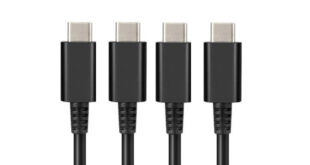Make no mistake, the past 12 months of sales and growth for the games industry were driven in part by Nintendo, it’s Wii console and its alternative controller, and the push to wider and alternative demographics.
There’s no denying the format holder’s part in helping drive the games markets around the world to report record revenues and booming hardware markets in various territories.
But at what cost to the rest of the industry does this success come? This is a question posted by Jon Hare, currently director of development at Nikitova Games and the designer of 16-bit classics Sensible Soccer and Cannon Fodder, in response to our recent story regarding Nintendo’s booming software sales in the UK during December.
In a comment posted to our sister site MCVUK.com replying to the story about Nintendo’s chart dominance, Hare addressed the awkward position Nintendo manages in the industry as both a hardware vendor, first party developer, and approver of third party products, saying the format holder has some tough decisions in terms of its relationships with smaller publishers and developers if it wants to maintain its sales growth and current industry dominance.
"Good for Nintendo, they have always been the best developer in the world in any case. It is just a shame that this time they had to put so many other publishers and developers noses out of joint in order to ensure that their titles received such high priority on their hardware formats," said Hare.
Hare cites the 2007 Q3/Q4 delay in manufacturing of third party product, and says the approval process’ "feeding back Lotcheck failures in drops and drabs at such a crucial time of the year" as "unacceptable" and points out that format-holder approval processes at Nintendo (and for that matter Sony and also Microsoft) have a negative impact on product quality.
He said: "Companies such as Sony, Nintendo and Microsoft should feel lucky that at present no international law forces them to open up their platforms as free technical platforms such as VHS, DVD or Stereo. Personally I feel it is no coincidence that the quality of sequelled, non-licensed original software has gone down ever since controlled platforms became the norm in the mid ’90s."
Hare adds: "The only exceptions to this are those titles that are either developed or bankrolled by the hardware manufacturers themselves and a handful of titles from big hitters like EA and Ubisoft."
Because of this Nintendo, as the current dominant hardware manufacturer of current generation consoles, "now faces a moral dilemma," Hare says.
"Does it revert to type and admit that it doesn’t really care very much about the rest of the world after all, or does it properly embrace working with third parties and all the extra demand that this brings? Either way if it does not improve on what happened at the end of this year in regard to working with smaller third parties it may find that support for its platforms will start to thin out again from the smaller developers and publishers.
"But then again maybe that is exactly what they want in order to maintain the hallmark of quality on wich their reputation is built."
What do you think? Do the approval processes put in place by format holders mean first-party product will always get the most attention than the titles being made at your studio? Do developers simply have to work on better ideas, or will a company like Nintendo always be the best developer of games for its own platforms by virtue of the fact its software and hardware teams are so closely linked? Let us know your thoughts via the comment section below.

 MCV/DEVELOP News, events, research and jobs from the games industry
MCV/DEVELOP News, events, research and jobs from the games industry



